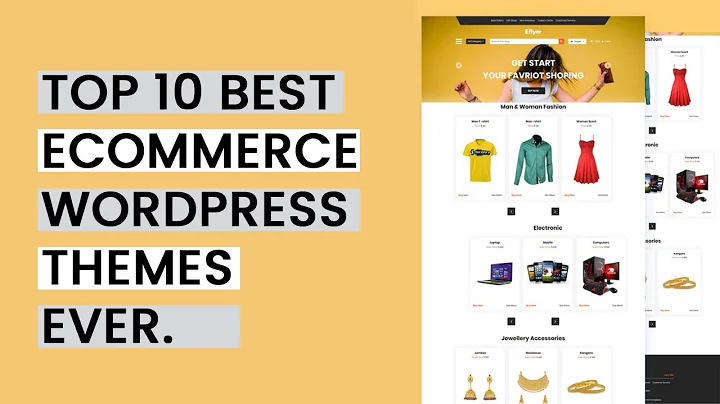Choosing the Best Platform to Sell on: Amazon, Shopify, eBay, or Etsy?
Table of Contents
- Introduction
- Choosing the Right Selling Platform
- Amazon
- Shopify
- Etsy
- eBay
- Factors to Consider
- Product Type
- Target Audience
- Branding and Customer Base
- Cost and Profit Margins
- Fulfillment and Shipping Options
- Marketing and Advertising
- Long-term Sustainability
- Conclusion
Amazon vs. Shopify vs. Etsy vs. eBay: Choosing the Right Selling Platform
When it comes to selling products online, there are several popular platforms to choose from, including Amazon, Shopify, Etsy, and eBay. Each platform offers its own unique features and benefits, making it important to understand which one is the best fit for your specific needs and goals. In this article, we will compare these four platforms and discuss the pros and cons of each to help you make an informed decision.
Amazon
Pros:
- Amazon is the largest online marketplace, providing access to millions of potential customers.
- The platform has a dedicated customer base, including Amazon Prime members who enjoy benefits such as free shipping and fast delivery.
- Amazon's search engine allows you to target specific keywords and rank higher in search results.
- Advertising options, such as sponsored product ads, can help increase product visibility.
- Amazon FBA (Fulfillment by Amazon) can handle order fulfillment and shipping, saving you time and effort.
- Integration with other Amazon services like Prime Video and Alexa can further enhance brand exposure.
- Potential to expand internationally, as Amazon operates in multiple countries.
Cons:
- Increased competition, as many sellers are already established on Amazon.
- High competition can drive down prices and impact profit margins.
- Strict policies and guidelines that sellers must adhere to.
- Limited control over customer data and communication, as Amazon handles customer support.
- Fees and commissions that can eat into profits.
Shopify
Pros:
- Easy to set up and use, even for beginners with no coding skills.
- Customizable website and branding options to create a unique online store.
- Flexible and scalable, allowing you to add products, features, and integrations as your business grows.
- Offers a wide range of payment options for customers.
- SEO-friendly features to optimize your store for search engines.
- Ability to reach a global audience by selling internationally.
- Shopify App Store provides access to various apps and plugins to enhance store functionality.
Cons:
- Requires time and effort to drive traffic to your website, especially if you have no existing audience or customer base.
- Additional costs for website hosting, domain registration, and app subscriptions.
- Limited control over customer support and fulfillment, unless using third-party services.
- Can be challenging to compete with established brands and marketplaces.
Etsy
Pros:
- Ideal for selling unique, handmade, or vintage products.
- Targeted audience of buyers looking for one-of-a-kind items.
- Built-in community and support for sellers, including forums, tutorials, and seller resources.
- Simplified listing process and seller tools specific to handmade and craft businesses.
- Etsy's search algorithm is designed to promote unique and individual products.
- Ability to participate in market trends and themed events.
- Low fees compared to other platforms.
Cons:
- Limited to handmade, vintage, and craft-related products.
- More competition within specific niches.
- Reliance on Etsy's platform and policies for customer support and communication.
- Limited control over branding and customization options.
- Lack of integration with external marketing tools.
eBay
Pros:
- Suitable for reselling a wide range of products, including used and pre-owned items.
- High visibility and reach, as eBay has a large customer base and global presence.
- Auction-style listings offer the potential for higher prices and bidding wars.
- Flexibility in pricing and listing options, such as fixed-price listings or best offers.
- Ability to sell in various categories, including electronics, fashion, collectibles, and more.
- Lower fees compared to other platforms, especially for smaller sellers.
Cons:
- Reputation for lower quality or second-hand products, which may impact buyer trust.
- Increased competition, as eBay is a well-established marketplace.
- Limited control over branding and customization options.
- eBay's search algorithm may prioritize sellers with higher feedback scores or sales volumes.
- Reliance on feedback and ratings as a trust-building mechanism.
In conclusion, choosing the right selling platform depends on various factors such as the type of products you sell, your target audience, branding goals, cost considerations, fulfillment preferences, and long-term sustainability. Consider your unique business needs and weigh the pros and cons of each platform discussed above to make an informed decision. Remember, it is also possible to sell on multiple platforms simultaneously to maximize your reach and diversify your sales channels.


















